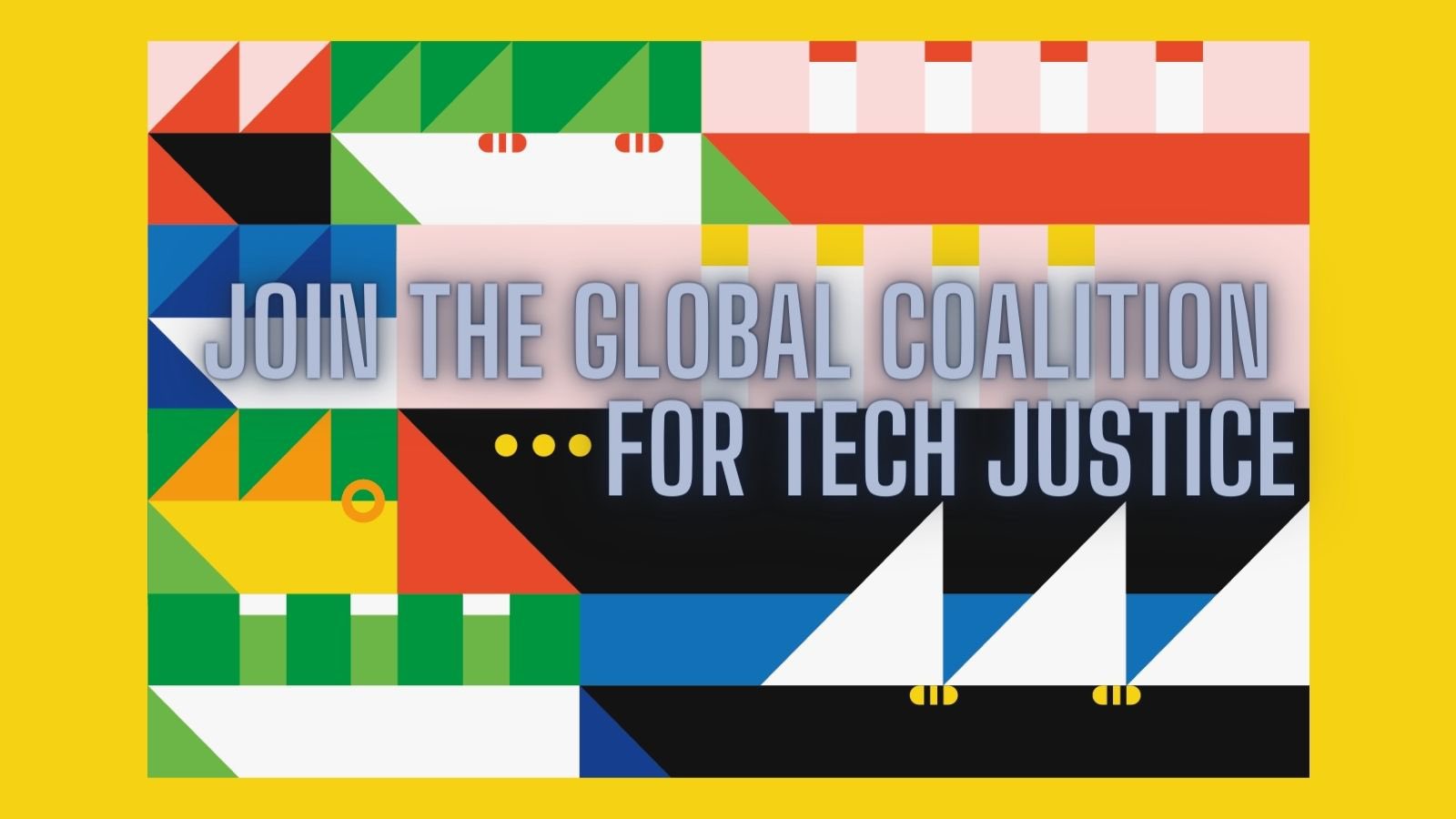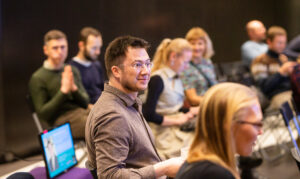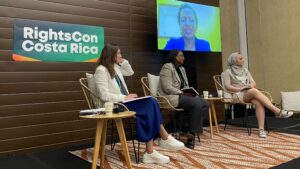Five Asks from Global Coalition for Tech Justice to Big Tech Companies
In 2024, sixty-five general electionsImproving transparency in elections and maintaining the independence of electoral commissions is vital for promoting trust in the electoral system, preventing electoral fraud, and upholding the democr... More will take place all over the world, including India, Mexico, Indonesia, and the United States. In past years, the underinvestment in safeguards by big tech companies could have contributed to allowing for misinformation and disinformation to run rampant and negatively impact democratic outcomes and human rightsAn essential part of open government includes protecting the sacred freedoms and rights of all citizens, including the most vulnerable groups, and holding those who violate human rights accountable. T..., with disproportionate harms in global majority countries.
Despite the problems being known to a lot of internet users, governments, and the digital rights community, the lack of consistency in how these countries deploy new content policies and new safeguards for electoral contexts is a problem that needs to be addressed. How can we uphold our societies democratic values and ensure electoral processes are not taken over by the large spread of harmful and problematic content online? And how can the experience of policymakers be matched with the diverse perspectives of experts from academia and civil society to increase the global understanding of what’s at stake and walk towards the solutions?
On September 15, the Global Coalition for Tech Justice will launch the #YearofDemocracy campaign to catalyse a global movement to promote equitable and effective safeguards to protect democratic and human rights. The movement will leverage the power, influence, and voice of civil society, national electoral commissions, legislators, activists and journalists. The goal is to ensure Big Tech companies like Meta/Facebook, Google/YouTube, Twitter/X, TikTok, and others play theirs role in protecting elections and citizens’ rights and freedoms across the world.

Credit PlaceholderPHOTO: Credit: Digital Action
To keep this moment and movement going, our coalition has put forward a campaign asks document where we demand these companies to develop resourced global and country action plans that do the following:
- Mainstream international human rights and electoral standards. This means assessing the compliance of existing and new policies and enforcement protocols with human rights and electoral standards. It also includess engaging with election bodies, free of political interference, and enabling the work of independent election monitors.
- Be fully resourced and proportionate to risk of harm, not market size. This means things such as:
- (publishing investment and personnel details per language for trust and safety efforts by country;
- ensuring expertise in local languages for content moderation;
- prioritising impacts in regions with human rights challenges for inclusive online platforms
- Addressing past disparities in investment between US and other countries; and
- Adopting standardised reporting for transparencyAccording to OGP’s Articles of Governance, transparency occurs when “government-held information (including on activities and decisions) is open, comprehensive, timely, freely available to the pub... More, enabling monitoring by researchers, regulators, and civil society.
- Enable accountability. This means documenting and archiving all actual or potential harms taking place on the platforms and testing the accuracy and effectiveness of harm mitigation measures to enable real-time and post-facto accountability efforts.
- Strengthen, increase, and provide partnerships with fact-checkers, independent media, civil society, and other bodies that protect electoral integrity. Companies should engage with full respect for partners’ independence, report on the amount of meaningful engagement in a standardised format, and collaborate with other companies to optimise investments in trust, safety, and reporting.
- Ensure and establish proper oversight and transparency. Provide data access and training for researchers, civil society, media, and election monitors. Enhance access and use of tools such as Crowdtangle on Meta, create equivalent tools on Alphabet, and maintain an open API on X. Ensure transparency and accuracy of ad libraries, targeting parameters, and financial information for campaign scrutiny. Conduct independent auditsInstitutional and legal frameworks are necessary for providing assurance of the integrity of financial information and of compliance with budgetary rules and procedure. Technical specifications: These... of enforcement, including ad library accuracy and algorithmic effects. Publish standardised content moderation policies, enforcement details, and appeal mechanisms.
“Protect people and elections, not big tech!”
Join our movement to demand action from Big Tech and global decision-makers for safe and responsible social media and messaging. Our campaign is built around a theory of change that media and elite pressure in the US and EU can lead to increases in platform investments outside of those regions. It also aims to shape a cohesive global narrative and movement to build the next wave of globally impactful governance frameworks and enforcement. Check out our website for more information!
Plus join Digital Action for a panel about the #YearofDemocracy Campaign at the upcoming OGP Global Summit, on September 7, from 3:00pm – 4:15pm EEST. Hope to see you there!
Comments (2)
Pouyan Reply
This blog highlights crucial steps for ensuring tech justice. Big Tech must heed these calls to foster a more equitable digital landscape.
Leave a Reply
Related Content
 Challenges and Solutions
Challenges and Solutions
OGP and EITI: A Shared Agenda on Anti-Corruption and the Energy Transition
The Open Government Partnership (OGP) and the Extractive Industries Transparency Initiative (EITI) have much in common. These global multi-stakeholder initiatives both aim to deepen open governance and transparency and share…

Four Steps to Build Dialogue Between Government and Civil Society
How can governments build a more constructive relationship with civil society? Get started with four steps outlined by OGP members at a recent Democratic Freedoms Learning Network here.

How to Engage at the 2023 OGP Global Summit


simon fenton-jones Reply
Thanks Bruna,
Would you please consider a different approach during the conversations at the conference. I arrived too late to have this perspective incorporated within the conference sessions. It comes down to the convergence between (what network techs mean when the talk about) public “domains”. We are watching the convergence between .edu (International) and .gov (National) inter-networked domains.
This video lecture, given by a 2021 Spinoza Prize winner in the Nederlands, illustrates the perspective of people (engineers and network managers) who run public networks, mainly in the National Research & Education (NREN) space. Google “NREN” to see my Wikipedia list.
youtube.com /watch?v=PlFb6efz7lY
Jose’s communities’ language is about “platforms”, whereas, when OGPers talk about “tools” , they are usually talking about “applications”. Platforms are aggregations of apps which, together (integrated), provide an online environment where one (an insider or an outsider) can feel at home and access, share and store stuff. Your ID, used to access these platforms often becomes the target profile for abuse by Commercial, and State, actors. (Big tech can be either)
NREN communities all have a global perspective because they already provide the backbone for global public research spaces. E.g. Here’s the main European hub. network.geant. org/international_connectivity/
What iS needed is a discussion between global working groups who are as passionate about open governance as they are about open research and education. A little co-creation on designing a shared platform perhaps?
P.S. Where is the conference being streamed?